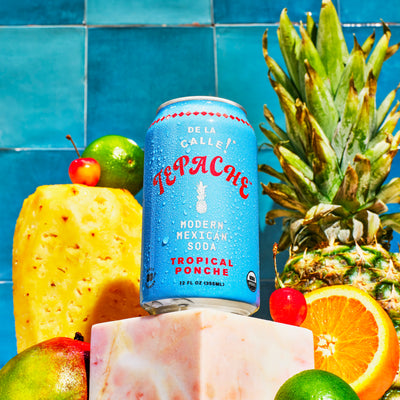Gut Health: Its Importance and What You Need To Know

Gut health has become a hot topic in the health and wellness world recently, but you might not know why. This article will provide an overview of gut health, its importance to your overall health, and a few simple ways you can improve your gut health.
What Does Your Gut Do?
The term “gut” refers to your gastrointestinal system, also known as your digestive system, digestive tract, or GI tract. Your gut is made up of several organs, including your mouth, esophagus, stomach, pancreas, liver, gallbladder, small intestine, colon, and rectum.
Your gut performs several crucial functions, including taking in and absorbing nutrients and water, converting food into absorbable nutrients and stored energy, and removing waste from the body.
Although these are its simple functions, the gut has also recently been linked to several other aspects of your overall health that seemingly have little to do with digestion, including protection from illnesses such as autoimmune diseases, cancer, and Type 2 diabetes. It is thought that this protection comes from the microbiome, a term used to refer to the trillions of bacteria and other microorganisms that live in your gut. They can affect much more, too—for example, an imbalanced gut might lead to problems with your blood sugar and even inflammatory bowel disease, while a healthy gut might help combat obesity.
Why Is Gut Health So Important?
Gut health is so important because your gut is where food is sent to be converted into the nutrients your body needs to function and remain healthy. This intricate process can only happen when your gut is healthy, and it can affect your entire immune system. Just as with health overall, proper gut health looks and feels different for everybody.
That being said, there are a few markers of proper gut functioning. One of the most important aspects of a healthy gut is a diverse population of bacteria and other microorganisms in the microbiome. These organisms include bacteria, fungi, microbes, and viruses. When you are sick with a bacterial infection, there is a higher amount of the illness-causing bacteria in your system and far less diversity.
For this reason, it is important to make lifestyle choices that facilitate a bacterial equilibrium in your gut. Given that some bacteria promote inflammation while others reduce inflammation, you want to have a good balance of the two because they keep each other in check. When there are too many bacteria that promote inflammation, it can produce metabolites that enter the bloodstream and cause inflammation in other parts of the body.
Additionally, if there is a large population of “bad” bacteria in your gut that goes unchecked, it can compromise your immune functioning. Gut health has also been linked to your mental health and is thought to possibly play a role in mental illnesses such as anxiety, depression, schizophrenia, and dementia.
What Affects Gut Health?
Unfortunately, there’s no one clear answer as to what affects gut health. Luckily, we know of several factors that play a part in influencing the overall health of your gut and the diversity of your microbiome.
Diet
One of the biggest factors that determine your overall gut health is diet. In order to maintain a healthy gut, it is generally advised to eat a diet that is high in fiber with moderate amounts of protein and low levels of fat, with as few processed foods and toxins as possible. It is also incredibly important to stay hydrated with liquids such as water, green tea, or probiotic drinks, making sure to limit drinks that contain lots of sugar, caffeine, and alcohol.
It is important to eat a high-fiber diet for a few reasons. Fiber allows water to enter your stool which makes it easier to pass and allows it to move through your digestive system without pain. Fiber is also an essential ingredient in a healthy diet because it functions as fuel for important bacteria in our gut. Given that we cannot naturally process fiber, it can pass through our system undigested and can be used by the bacteria in our gut as a food source—those prebiotics that probiotics use a fuel.
Stress
Emotional stress is also thought to have an effect on your gut health. Oftentimes, scientists will talk about the “gut-brain axis.” This axis is a pathway wherein signals from the gut and neurotransmitters in the brain can affect each other. Although more research is needed, it is thought that there is a strong connection between your gut health and mental health.
Medication
Another factor that can influence your gut health is medication. Given that all medication has to be processed by the gut for it to function, all medications, from over-the-counter painkillers to diabetes medication, can cause changes in your microbiome.
That being said, the medication with the most noticeable negative effect on your gut microbiome is antibiotics. Even though antibiotics are supposed to target bad bacteria in the gut, they can sometimes kill off bacteria of all kinds. This means that the good bacteria in your gut might be at risk when you are taking antibiotics. For this reason, it’s important to take them only when you absolutely need them and to supplement your diet with probiotic bacteria.
Signs of An Unhealthy Gut
Luckily, it is usually easy to tell when you are experiencing gut problems. Some of the most common signs of an unhealthy gut include bloating, diarrhea, gas, nausea, and general stomach pain. Generally, these symptoms do not last long, and when there is an imbalance of bacteria and microorganisms in your gut, it can correct itself. However, chronic gut imbalances necessitate medical attention, diagnosis, and treatment.
Although the signs of an unhealthy gut are quite clear in many instances, there are also recent discoveries that reveal imbalances in gut bacteria sometimes do not cause immediate symptoms. For this reason, it is important to make dietary and lifestyle choices that will promote a healthy gut, even if you do not feel the symptoms of an imbalanced microbiome.
How Can I Improve My Gut Health?
Given that it can be difficult to know the exact state of your gut, you can improve your gut health by improving your overall health. All of the lifestyle recommendations for overall health, such as eating a balanced diet with fruits, vegetables, and whole grains, reducing stress levels, getting enough sleep, and regular exercise, will result in a healthy gut.
It is also thought that unhealthy behaviors such as smoking and frequent alcohol abuse can negatively affect your gut microbiome. Similarly, it can be beneficial to limit foods like dairy, red meat, processed meat, and refined sugar. All of these foods can compromise your gut health if you frequently eat large amounts of them.
While you want to stay away from foods like red meat and dairy, you should try to incorporate lots of high-fiber foods into your diet. Look out for garlic, onions, asparagus, legumes, and beans, and many other plant-based foods to incorporate some fiber. That being said, suddenly transitioning to a high-fiber diet can lead to uncomfortable bloating, so incorporating fibrous foods slowly is ideal.
You can also try incorporating foods with probiotic bacteria, such as tepache, a beverage made from fermented pineapple, or kombucha, a fermented tea drink. The beneficial bacteria in drinks such as tepache can help supplement the population of healthy bacteria in your gut, especially when those populations might be compromised.
Other probiotic-rich fermented foods include sauerkraut, yogurt, kimchi, kefir, and many more. Generally, the best way to maintain a healthy gut is to eat a balanced, diverse diet full of foods that are high in nutrients and fiber.
Conclusion
It is extremely important for your overall health that you maintain a healthy gut. There are several signs of an unhealthy gut, including gas and bloating. Even if you are not experiencing those symptoms, it is still a good idea to eat a healthy, balanced diet, full of foods that will positively impact your gut health, whether that means fermented foods like tempeh and miso for foods that are high in fiber, like bananas and oats.
Sources:
Gut microbiota's effect on mental health: The gut-brain axis | NCBI











